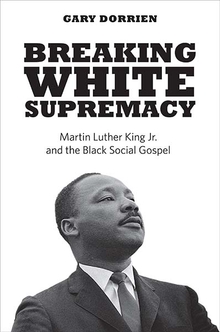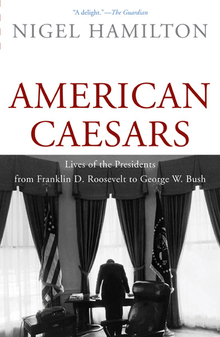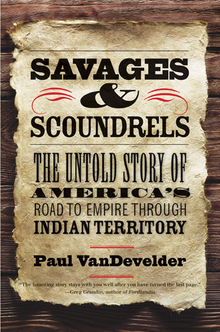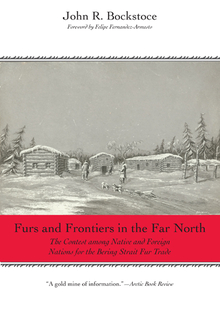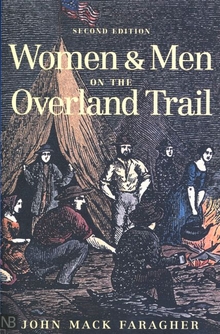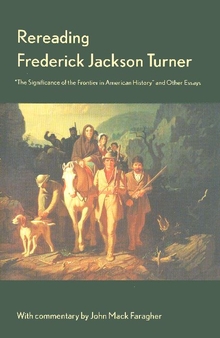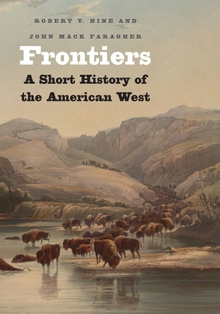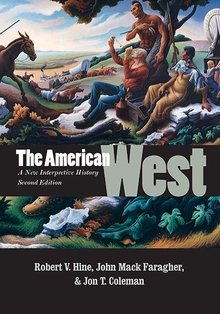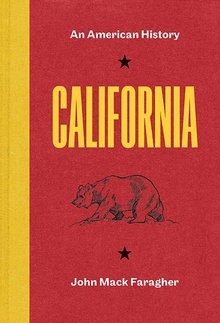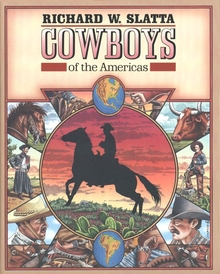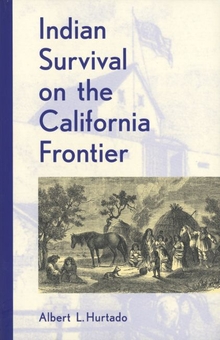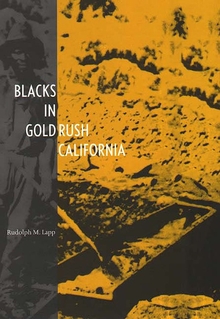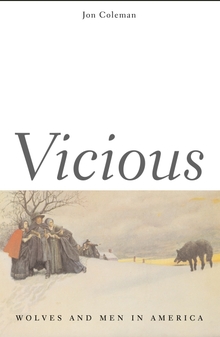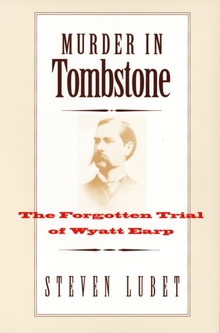Sugar Creek
WARNING
You are viewing an older version of the Yalebooks website. Please visit out new website with more updated information and a better user experience: https://www.yalebooks.com
Life on the Illinois Prairie
John Mack Faragher
"This is a book for anyone who has ridden down a country road and, hearing the wind whistle through the cornstalks, wondered about the Indians and pioneers who listened to that sound before him."—Ron Grossman, Chicago Tribune
Winner of the 1986 Society for the History of the Early American Republic Award
The fascinating story of the birth and development of a rural American community from its origins at the turn of the nineteenth century to the years that followed the Civil War. Drawing on newspapers, account books, and reminiscences, the author of the prize-winning Women and Men on the Overland Trail vividly portrays the lives of the prairie’s inhabitants—Indians, pioneers, farming men and women—and adds a compelling new chapter to American social history.
"Every chapter, almost every page, contains new ideas or throws new light on old ones, by means of a wealth of detail and clarity of though which brings the past alive again."—Hugh Brogan, The Times Literary Supplement
"Here, succinctly set out, is the American prairie experience."—Publishers Weekly
Winner of the 1986 Society for the History of the Early American Republic Award
The fascinating story of the birth and development of a rural American community from its origins at the turn of the nineteenth century to the years that followed the Civil War. Drawing on newspapers, account books, and reminiscences, the author of the prize-winning Women and Men on the Overland Trail vividly portrays the lives of the prairie’s inhabitants—Indians, pioneers, farming men and women—and adds a compelling new chapter to American social history.
"Every chapter, almost every page, contains new ideas or throws new light on old ones, by means of a wealth of detail and clarity of though which brings the past alive again."—Hugh Brogan, The Times Literary Supplement
"Here, succinctly set out, is the American prairie experience."—Publishers Weekly
John Mack Faragheris associate professor of history at Mount Holyoke College.
"A rich description and insightful historical analysis of how a frontier community matured in its 'first generation.' This gracefully written study truly aims at a 'total history' of a locale."—Don H. Doyle
"It is rare for an historian to find a vehicle in which he can express a multitude of his own and his profession's deepest concerns, but Faragher has found one here. The environment, the native peoples, the roles of men and women and families, the intertwinings of class and social pressures—all come together in this study of a Sangamon country town. . . . Faragher gives a strong, balanced interpretation of the meaning of community. Through his loving attention to the human condition, he should delight the scholar with his details and the local historian with his general understandings."—Robert V. Hine, Professor of History, University of California at Riverside
"John Faragher has somehow managed to epitomize the whole complex process of America's frontier settlement and community growth in this charmingly written history of Sugar Creek. By attempting the total history of an American rural community over time, he has not only given us an account of the lifestyles of men, women, and children, but has provided a continuity between America's rural past and its urban-industrial present that is so sadly lacking in most American historical writing. Indeed, Faragher believes that the family-oriented communities like Sugar Creek have not only persisted but have been a base for dealing with the modern world. Sugar Creek is a major new interpretation of America's rural past."—Howard R. Lamar, Yale University
"[A] detailed case study of one rural community and a notably successful example of the new work being done on the social history of rural America. . . . Faragher has constructed a vivid portrait of everyday life as well as an analysis of how the community developed and changed."—George M. Fredrickson, New York Review of Books
"Sugar Creek is that rarest of all aves rarae: an academic book capable of sustained flight over the ivory tower's walls. . . . This is a book for anyone who has ridden down a country road and, hearing the wind whistle though the cornstalks, wondered about the Indians and pioneer who listened to that sound before him."—Ron Grossman, Philadelphia Inquirer
"An engaging social history of Sugar Creek in Sangamon County, Ill. . . . Here, succinctly set out, is the American prairie experience."—Publishers Weekly
"A pleasantly written study of rural life in Sangamon County. . . . Faragher skillfully interweaves social, economic and cultural history into a whole that is local history at its best, but, because of multiple implications, is much more than the history of a locality. . . . This little book can fit into collections on family, agriculture, social, and women's history."—Library Journal
"As late as 1981 descendants of 23 of the 44 families settling before 1840 who had persisted in the area continued to farm along Sugar Creek and to own 10 percent of its land. The environment has changed appreciably, but the community persists to a surprising degree, as this handsomely produced and delightfully accessible saga documents."—Judith L. Everson, Illinois Issues
"Every chapter, almost every page, contains new ideas or throws new light on old ones, by means of a wealth of detail and clarity of thought which brings the past alive again."—Hugh Brogan, Times Literary Supplement
"This is a local history with vastly more than local interest and significance."— Key Reporter
"A masterpiece of local history."—Choice
"Here is a book difficult to set aside until fully read. . . . What captures the reader's imagination is the thoroughness with which the author examines the important themes of contemporary frontier scholarship within the context of area. . . . Nicely written, the story of Sugar Creek comes alive as an epic tale relating culture, society, economy, and environment. The work has been meticulously researched and is presented with a flair for the dramatic."—John A. Jakle, Indiana Magazine of History
"Faragher has woven a richly-textured narrative of social and community relations in central Illinois during the frontier era."—Allan G. Bogue, Western Historical Quarterly
"A major demographic study of family and community life in rural Illinois, 1800-1860."—Donald E. Everett, Social Science Quarterly
"Those who have felt the impact of the profound sense of solidarity of the rural American communities in the Mid West will find in this excellent essay on local history the keys to understanding that conduct which is s much alive. Also to be found in these pages are some of the reasons for the genesis of a great nation, in the struggle of a handful of pioneers against a hostile environment."—Anglo-American Studies
"John Mack Faragher knows and writes about the real history of the American West: the Indian-hating, the racism, and the misogyny, as well as the egalitarianism, the generosity, and the democratic ethos."—Michael Merrill, Journal of American History
"Faragher's study of Sugar Creek provides sophisticated analysis concerning the relationship of the southern and western frontiers, and the relationships of the antebellum plain folks to the developing capitalist economy. . . . A refreshingly unromantic approach to the plain folks. He demonstrates how the great transformation of nineteenth-century American rural life was enacted in one rural locale. . . . He makes a convincing analysis of why some of the plain folks became wealthier farmers while others did not, and then either moved on or lowered expectations. . . . His book provides a sophisticated framework for further discussions of class antagonism and consent and of the nature of participation by farmers in the rapidly-evolving nineteenth-century American capitalist society."—Michael Fellman, Canadian Review of American Studies
"This book is of value to those interested in the settlement process and it does reinforce existing opinions while dispelling myths. The frontier in this case was not settled by isolated individuals but by groups, and its history is of value to all who study the settlement of the West."—Jerry Gerlach, Journal of the West
"The charm of Faragher's account is that the great themes of American history emerge effortlessly from the recreation of the lives of individuals and families in one rural area."—Christopher N. Breiseth, Illinois Historical Journal
"Through the prism of Sugar Creek, Sangamon County, Illinois, John Mack Faragher illuminates the process of westward settlement and the transition to a mature rural economy in the Old Northwest. . . . it presents an elegant, highly readable account of the growth of frontier communities, the role of the family in the settlement process, and political developments in Illinois during the first half of the nineteenth century."—Jay Kleinberg, Journal of American Studies
"In his assessment of the rural creed, John Mack Faragher emphasizes the spirit of community over the myth of the self-reliant pioneer, the value of kinship in favor of social and political bonds, the limit on children in an affluent family, the improvement of a farm at the expense of tenants, and the preference for land instead of technological innovations."—Gunther Barth, Pacific Historical Review
"[An] immensely readable study splendidly recreates the structure, dynamics, texture, and emotions of a rapidly changing rural society."—Bruce Collins, History
Winner of the 1986 Society for Historians of the Early American Republic Award, this prize is given annually to the best scholarly study on American History in the period 1739-1848
ISBN: 9780300042634
Publication Date: March 11, 1988
Publication Date: March 11, 1988
285 pages, 6 1/8 x 9 1/4
11 b/w illus.
11 b/w illus.


